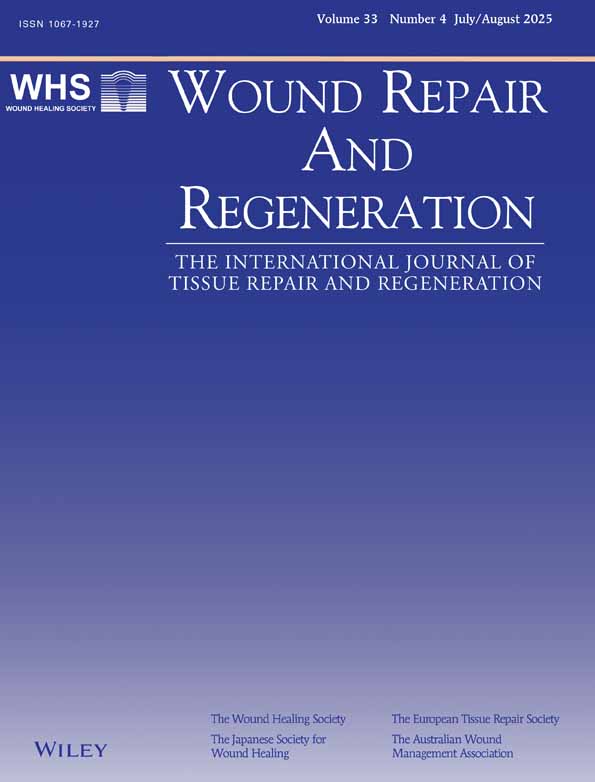Randomized trial of topically applied repifermin (recombinant human keratinocyte growth factor-2) to accelerate wound healing in venous ulcers
Abstract
About 600,000 people in the United States are estimated to be affected by venous ulcers. The cornerstone of care of chronic venous ulcers involves the application of compression bandages. Other therapies include treatment of associated infection, treatment for edema and inflammation, and debridement when necessary. Repifermin, a recombinant human KGF-2 (fibroblast growth factor-10), exerts a proliferative effect on epithelial cells, in vitro and in vivo, and has been shown to accelerate wound healing in several experimental animal models. A randomized, double-blind, parallel-group, placebo-controlled, multicenter study was conducted to evaluate the safety and efficacy of topical repifermin treatment, for 12 weeks, in the healing of chronic venous ulcers in 94 patients. Repifermin was shown to accelerate wound healing, with significantly more patients achieving 75% wound closure with repifermin than with placebo. The treatment effect appeared more marked for a subgroup of patients with initial wound areas ≤ 15 cm2 and wound ages of ≤ 18 months. A longer duration of treatment (e.g., 26 weeks) may allow better differentiation of the benefit of repifermin compared with placebo, particularly with respect to complete wound closure. The safety assessment showed that repifermin was well tolerated.




